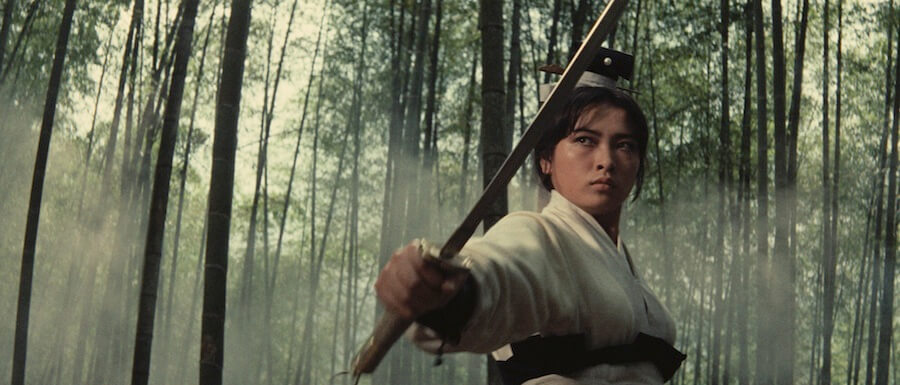‘A Touch of Zen’ Before “Crouching Tiger, Hidden Dragon,” 1971’s “A Touch of Zen” was the closest the martial arts genre came to Prestigious: It’s three hours long, it’s heavy on symbolism and Buddhism, and it was feted at Cannes. (It nabbed the Technical Grand Prize, in part for its gorgeous cinematography.) That doesn’t mean it doesn’t bring the hurt, or that it’s too classy. Its closest analog may be Sergio Leone’s “Once Upon a Time in the West”: arty yet dirty, super-long and instantly iconic yet enjoyable as pure genre junk. It’s a film of beauty and of violence, making mythic what’s still a typically semi-convoluted plot that’s mostly a foundation for beatdowns, swordplay and a surely Guinness-level amount of hopping about buildings and forests. RELATED: Review: “Tale of Tales” is a grim fairy tale movie about death and insignificance “Zen” — newly reissued after a loving restoration — even takes awhile to get to the “goods.” By that we mean the first fight doesn’t happen till the 56 minute mark (out of 187). One of our two heroes isn’t even a warrior. Ku (Shih Jun) is a slacker painter and scholar who finds himself hobnobbing with Yang (Hsu Feng). She’s no mere love interest; she’s a fugitive, the last one standing in a family whose line has been eradicated by a corrupt official. Ku must man up — not to save her, mind, but to join alongside her in battling waves of government forces, who tussle with them in places as arresting as a “haunted” house, two different kinds of forests and a desert right out of a John Ford film. “Zen” has fine, spirited action choreography, but the actors (including a young Sammo Hung) aren’t the stars. It’s the director. King Hu is the renowned but hardly prolific main attraction, whose most cherished works — “Come Drink with Me,” “Dragon Inn” (about to get a reissue itself) and “Zen” — aren’t just classics. They helped transform martial arts cinema, blending old school and new to breathe new and different life into the genre. When Hu directed “Come Drink with Me,” from 1966, it was his foray into action. An art designer turned actor turned director of, initially, dramas, and a lover of opera and history, he came at martial arts from a unique angle. RELATED: 6 movies that used Prince brilliantly Where most productions were shot on the quick, Hu was fastidious and fussy, favoring overtly beautiful imagery as well as an editing style that chopped up the action in dynamic yet jarring ways. His favorite trick is to cut from people about to kick ass to a sudden insert shot of them flying through the air, then a cut to them landing. David Bordwell calls it the “glimpse”: the quick, disconnected editing stresses the otherworldliness of their actions as much as it gives us a visceral rush. (Compare/contrast with today’s “chaos action,” in which the editor chops up action into entirely indiscernible movement. You can always basically follow what’s happening in a Hu film.) The actors are more props than people, but what people. Hu likes to film them from low angles, as though they their faces were atop Mount Rushmore. Like Leone, he depicted them as bold figures made of granite, only ones that could suddenly spring into furious action. And when they go they can’t stop. The action set pieces seem to last forever, and they might as well. With “Zen,” Hu doubled down on violence that could also boast extreme visual beauty. The two centerpieces set in forests combine smackdowns and extreme hop-alongs with sunlight peering radiantly though the trees, as though heroes and baddies alike were surrounded by heavenly glows. And then there’s that psychedelic closer, in which a movie already lousy with Buddhist imagery makes a sudden and unforgettable segue into full-on religious transcendence. YouTube-able as “Zen” is, it’s a movie that’s even better and stranger when experienced in one epic swoop. “A Touch of Zen” currently plays at Film Forum through May 5. Visit the theater’s site for showtimes and tickets
Director: King Hu
Stars: Hsu Feng, Shih Jun
Rating: NR
5 (out of 5) Globes
‘A Touch of Zen’ brings back a great and unusual martial arts classic

Janus Films
Follow Matt Prigge on Twitter @mattprigge























